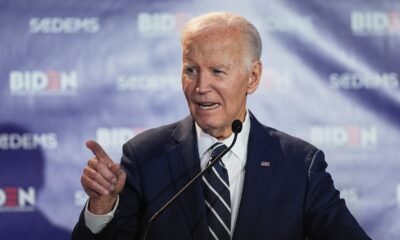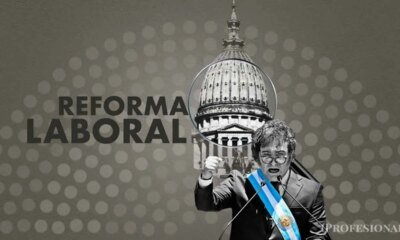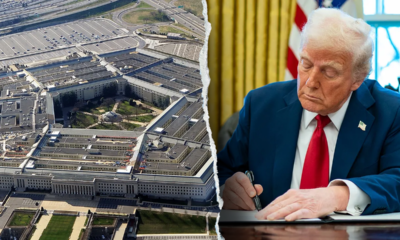INTERNACIONAL
Republican erupts at Democrat during shutdown hearing: ‘My people aren’t getting paid thanks to you’

NEWYou can now listen to Fox News articles!
Tensions flared at a House hearing to advance legislation aimed at ending the government shutdown on Tuesday night, with two senior lawmakers on opposite sides of the aisle trading barbs over the fallout.
House Appropriations Committee Chairman Tom Cole, R-Okla., clashed with Rep. Jim McGovern, D-Mass., the top Democrat on the House Rules Committee repeatedly at the outset of the hearing. Cole accused Democrats of derailing the federal government, while McGovern railed against the GOP’s refusal to attach provisions extending expiring enhanced Obamacare subsidies to its funding bill.
«This is the stuff you said you would never do. ‘We would never shut down the government. We would never do this.’ That’s exactly what you’ve done,» House Appropriations Chairman Tom Cole, R-Okla., said a short while later. «You’re putting thousands of people out of work.»
McGovern, who said emphatically that his constituents were «getting screwed,» said, «You tried over 50 times to repeal the Affordable Care Act,» Obamacare’s formal name.
‘THE PANDEMIC’S OVER’: GOP, DEM SENATORS SPAR ON CAMERA OVER COSTLY OBAMACARE SUBSIDIES
House Appropriations Chairman Tom Cole sparred with Rep. Jim McGovern, the top Democrat on the House Rules Committee, during a hearing on a bill to end the government shutdown. (Kevin Dietsch/Getty Images; Andrew Harnik/Getty Images)
He said he was getting calls from constituents who were «out of their minds» trying to figure out how to pay for healthcare without the subsidies.»
«Well the most immediate crisis in my district are the thousands of workers that you and your colleagues have put out of work, that aren’t getting a paycheck,» Cole said.
«They’re the ones that keep the airplanes flying. They’re the ones that do the national weather center. They’re wondering why they’re not getting paid.»
McGovern shot back, «You get no calls about healthcare?»
«We could have had these debates, we could have had these arguments. Why are they being held hostage?» Cole continued.
«The healthcare issue you’re talking about is a subsidy you passed on your own, you said it was COVID-related…The most immediate crisis in my district, you’ve created. My people aren’t getting paid thanks to you and your colleagues.»
SCREAMING MATCH ERUPTS BETWEEN HAKEEM JEFFRIES, MIKE LAWLER AS GOVERNMENT SHUTDOWN CHAOS CONTINUES
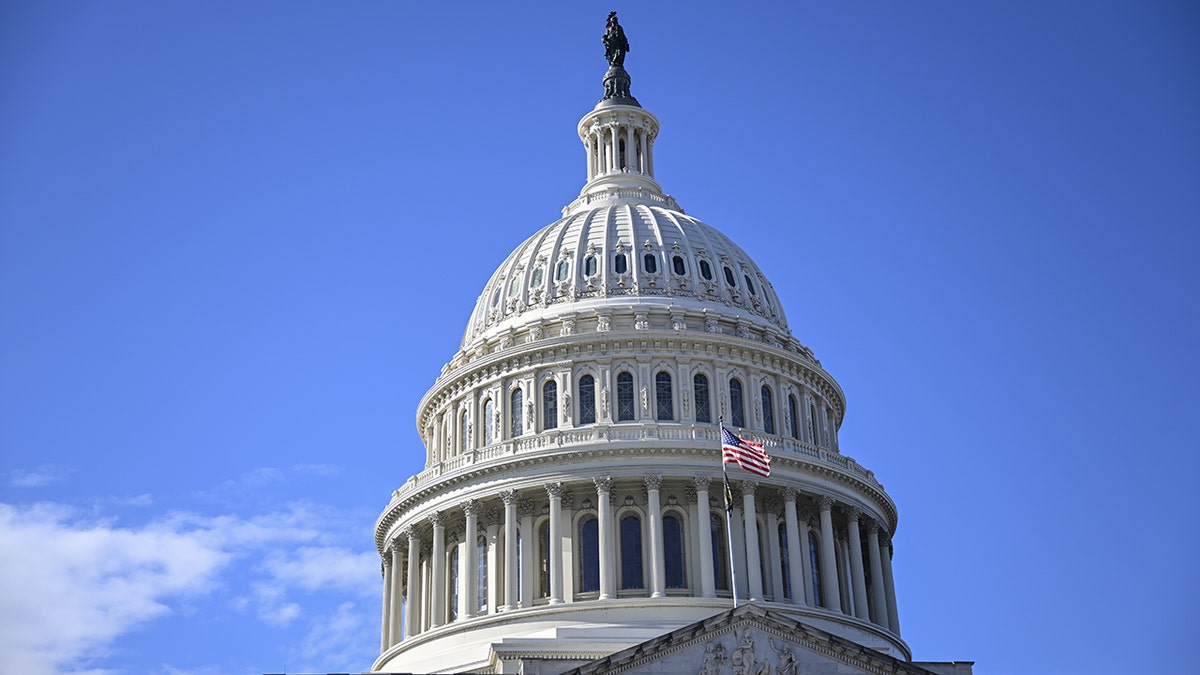
United States Capitol building is seen in Washington D.C., United States on Dec. 2, 2024. (Celal Gunes/Anadolu via Getty Images)
McGovern, who tried to interject multiple times, said, «So nobody in your district is complaining about healthcare?»
Cole conceded, «People complain everywhere about everything, but you asked me what the most important calls I get —»
McGovern cut him off with, «—We have a chance to do something about this.»
«— is, ‘Why am I not getting paid? Why am I being forcibly furloughed?’» Cole continued.
«We have a chance to do something to help millions of people afford their health insurance. And what you’re all telling me is you’re not interested,» McGovern said.
House Rules Committee Chairwoman Virginia Foxx, R-N.C., was ignored as she banged her gavel multiple times in an attempt to call order.
Cole, meanwhile, said the subsidies «have nothing to do with the work of my committee.»
«But you’re willing to hijack my committee,» he continued, before McGovern cut him off again, accusing Republicans of voting to «cut taxes for millionaires and billionaires» in the GOP’s «big, beautiful bill» earlier this year.

House Rules Committee Chairwoman Virginia Foxx, R-N.C., leaves the House Republican Conference meeting at the Capitol Hill Club on Wednesday, May 16, 2018. (Bill Clark/CQ Roll Call via Getty Images)
«But you could not extend these for people?» McGovern asked.
The House Rules Committee is the final hurdle for most legislation before it sees House-wide votes. Lawmakers on the key panel vote to advance a bill while setting terms for its consideration, like possible amendment votes and timing for debate.
CLICK HERE TO DOWNLOAD THE FOX NEWS APP
The funding bill at hand is expected to advance through the committee on party lines. Democrats on the panel are likely to oppose the measure in line with House Democratic leaders, while Republicans have signaled no meaningful opposition.
The vast majority of House Democrats have threatened to oppose the bill over its exclusion of the enhanced Obamacare credits, despite the legislation netting support from eight members of their own party in the Senate.
Republican leaders have signaled a willingness to discuss reforms to the system, which they have criticized as flawed. However, they’ve rejected any notion of pairing a healthcare extension with a federal funding bill that is otherwise largely free of partisan policy riders.
house of representatives politics,government shutdown,politics
INTERNACIONAL
Biden accuses Trump of erasing history and squandering US leadership role on global stage: ‘Dark days’
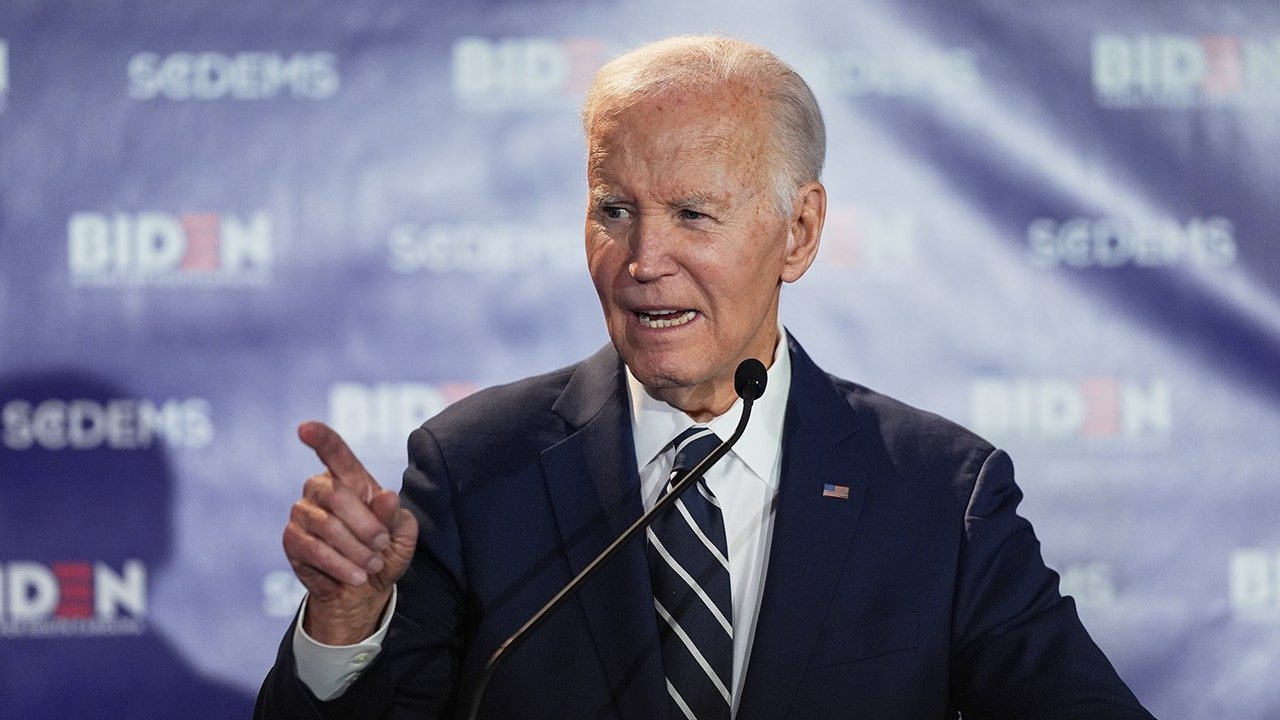
NEWYou can now listen to Fox News articles!
Former President Joe Biden on Friday accused President Donald Trump of attempting to «erase the truth» and squandering the United States’ role as the leader of the world.
«It’s not just my record Trump’s trying to erase,» Biden told South Carolina Democrats, while talking about the president’s efforts to get rid of the Affordable Care Act.
«He’s trying to erase fairness, equity, history, the truth,» he continued, citing incidents in which information about slavery has been removed or altered from museums and national parks since Trump took office.
«Great nations don’t bury the truth, Biden balked. «They face it. This is a great nation.»
Former President Joe Biden on Friday accused President Donald Trump of attempting to erase the truth and squandering the United States’ role as the leader of the world. (AP Photo/Matt Kelley)
Last summer, Trump wrote that «The Smithsonian is OUT OF CONTROL, where everything discussed is how horrible our Country is, how bad Slavery was, and how unaccomplished the downtrodden have been — Nothing about Success, nothing about Brightness, nothing about the Future.»
He also ordered a review of the Smithsonian to make sure its exhibits align with celebrating «American exceptionalism.»
Biden — the guest of honor at Friday’s «thank you» event organized by state Dems who helped resuscitate his presidential campaign six years ago — claimed the U.S. is currently living in «dark days.»
LIZ PEEK: AMERICA EXPECTED ONE THING FROM TRUMP’S STATE OF THE UNION. IT GOT ANOTHER
«Our future is literally on the line,» he said. «We have to be unapologetic about fighting for our country.»
Biden also issued a warning about the upcoming midterms, claiming that Trump is «trying to steal the election because he knows he can’t win your vote, so he’s going to do everything he can to prevent you from wanting to vote. … Mark my words. I hope I’m wrong.»
He said the more that voters see of Trump, the «less they like him.»
SPEECHWRITERS SPLIT AFTER TRUMP’S RECORD-BREAKING SOTU: ‘LIVING IN HIS OWN REALITY’ VS. ‘RESOUNDING SPEECH’
«They don’t like that he’s raising health care costs, fighting against the Affordable Care Act, and they sure as hell don’t like what they saw in Minnesota: Mass ICE agents pulling people out of their homes and literally murdering two people in the street,» he swiped.

President Trump delivered his State of the Union speech on Tuesday. (Kenny Holston-Pool/Getty Images)
Biden, 83, added, «They don’t believe the president should be king or dictator.»
He said because of this, Democrats are winning in places «you’d never expect.»
BIDEN TO HEADLINE NATIONAL BAR ASSN GALA DESPITE SON HUNTER’S DISBARMENT, ALONG WITH CROCKETT, TISH JAMES
«So, we have reason to be hopeful, because time and again throughout history, in the moments of great crisis, Americans have summoned the better angels of our nature and brought our country back from the abyss.»
Biden also predicted that Democrats would take back both the Senate and House of Representatives in November.
Biden boasted that he knew more heads of state than any other president in history, adding, «Americans knew they had a president who believed in, respected and followed the Constitution.»
Citing a Pew Research Poll that he said showed a «dramatic drop in our reputation around the world,» he claimed, «We’re no longer the way we were.»
He added if the U.S. doesn’t lead the world, it could be Russia or China that does.

Ukrainian President Volodymyr Zelenskyy meets with President Donald Trump, Jan. 23, in Davos, Switzerland. (Ukranian Presidency/Handout/Anadolu via Getty Images)
Biden also blasted Trump’s State of the Union speech on Tuesday for what he left out.
«The guy talks for almost two hours but never mentioned the anniversary of Putin invading Ukraine,» Biden admonished. «Never once.»
He also noted that the president didn’t mention Renee Good or Alex Pretti, the Americans who were killed by ICE agents earlier this year in Minneapolis, «or offer even a word of solace to their families.»
CLICK HERE TO DOWNLOAD THE FOX NEWS APP
«He doesn’t offer a word of support, even recognition to Epstein’s victims sitting in front of him during the entire time,» Biden said, mentioning the Jeffrey Epstein survivors who were in the audience for the speech. «He never acknowledged them.»
The White House did not immediately respond to Fox News Digital’s request for comment.
joe biden,politics,donald trump,south carolina,democratic party
INTERNACIONAL
Donald Trump dice que “no está contento” con las conversaciones con Irán y crecen los temores a un ataque de EE.UU.

INTERNACIONAL
ICE blasts Washington mayor over directive restricting immigration enforcement

NEWYou can now listen to Fox News articles!
U.S. Immigration and Customs Enforcement (ICE) accused Everett, Washington, Mayor Cassie Franklin of escalating tensions with federal authorities after she issued a directive limiting immigration enforcement in the city.
Franklin issued a mayoral directive this week establishing citywide protocols for staff, including law enforcement, that restrict federal immigration agents from entering non-public areas of city buildings without a judicial warrant.
«We’ve heard directly from residents who are afraid to leave their houses because of the concerning immigration activity happening locally and across our country. It’s heartbreaking to see the impacts on Everett families and businesses,» Franklin said in a statement.
«With this directive, we are setting clear protocols, protecting access to services and reinforcing our commitment to serving the entire community.»
ICE blasted the directive Friday, writing on X it «escalates tension and directs city law enforcement to intervene with ICE operations at their own discretion,» thereby «putting everyone at greater risk.»
Mayor Cassie Franklin said her new citywide immigration enforcement protocols are intended to protect residents and ensure access to services, while ICE accused her of escalating tensions with federal authorities. (Google Maps)
ICE said Franklin was directing city workers to «impede ICE operations and expose the location of ICE officers and agents.»
«Working AGAINST ICE forces federal teams into the community searching for criminal illegal aliens released from local jails — INCREASING THE FEDERAL PRESENCE,» the agency said. «Working with ICE reduces the federal presence.»
«If Mayor Franklin wanted to protect the people she claims to serve, she’d empower the city police with an ICE 287g partnership — instead she serves criminal illegal aliens,» ICE added.
DHS, WHITE HOUSE MOCK CHICAGO’S LAWSUIT OVER ICE: ‘MIRACULOUSLY REDISCOVERED THE 10TH AMENDMENT’

U.S. Immigration and Customs Enforcement blasted Everett’s mayor after she issued a directive restricting federal agents from accessing non-public areas of city facilities without a warrant. (Victor J. Blue/Bloomberg via Getty Images)
During a city council meeting where she announced the policy, Franklin said «federal immigration enforcement is causing real fear for Everett residents.»
«It’s been heartbreaking to see the racial profiling that’s having an impact on Everett families and businesses,» she said. «We know there are kids staying home from school, people not going to work or people not going about their day, dining out or shopping for essentials.»
The mayor’s directive covers four main areas, including restricting federal immigration agents from accessing non-public areas of city buildings without a warrant, requiring immediate reporting of enforcement activity on city property and mandating clear signage to enforce access limits.
BLOCKING ICE COOPERATION FUELED MINNESOTA UNREST, OFFICIALS WARN AS VIRGINIA REVERSES COURSE

Everett, Wash., Mayor Cassie Franklin said her new directive is aimed at protecting residents amid heightened immigration enforcement activity. (iStock)
It also calls for an internal policy review and staff training, including the creation of an Interdepartmental Response Team and updated immigration enforcement protocols to ensure compliance with state law.
Franklin directed city staff to expand partnerships with community leaders, advocacy groups and regional governments to coordinate responses to immigration enforcement, while promoting immigrant-owned businesses and providing workplace protections and «know your rights» resources.
The mayor also reaffirmed a commitment to «constitutional policing and best practices,» stating that the police department will comply with state law barring participation in civil immigration enforcement. The directive outlines protocols for documenting interactions with federal officials, reviewing records requests and strengthening privacy safeguards and technology audits.
CLICK HERE TO DOWNLOAD THE FOX NEWS APP

Everett, Wash., Mayor Cassie Franklin issued a directive limiting federal immigration enforcement in city facilities. (iStock)
«We want everyone in the city of Everett to feel safe calling 911 when they need help and to know that Everett Police will not ask about your immigration status,» Franklin said during the council meeting. »I also expect our officers to intervene if it’s safe to do so to protect our residents when they witness federal officers using unnecessary force.»
Fox News Digital has reached out to Mayor Franklin’s office and ICE for comment.
police and law enforcement,immigration,washington,immigrant rights

 POLITICA3 días ago
POLITICA3 días agoJorge Macri prepara su discurso para abrir el año legislativo: el deseo de reelección y el espejo en Bukele

 ECONOMIA2 días ago
ECONOMIA2 días agoCrisis en la industria: otra multinacional se achica y cierra una planta en la Argentina

 CHIMENTOS1 día ago
CHIMENTOS1 día agoAlarma por la salud de Divina Gloria tras salir de Gran Hermano: “La internaron directamente en terapia intensiva”

